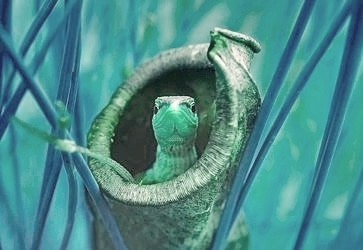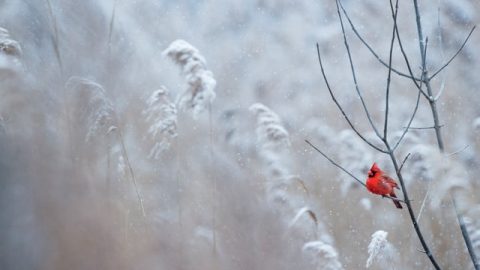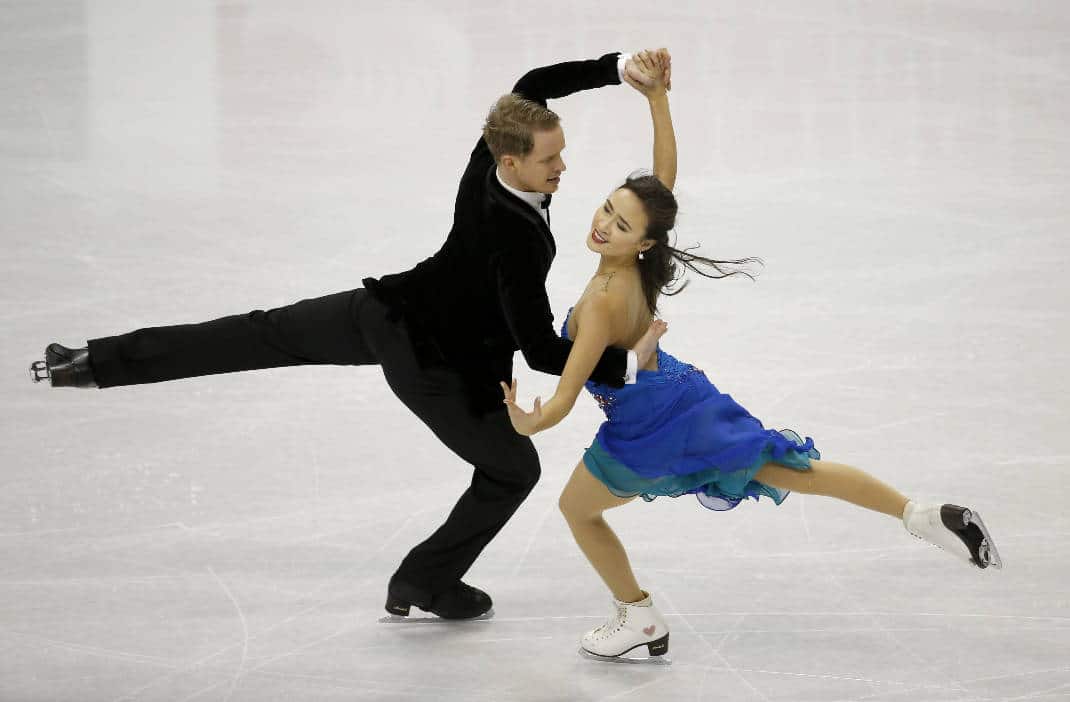Imagine passing Helen Keller as you were walking in the woods:
“One July afternoon at our ranch in the Canadian Rockies I rode toward Helen Keller’s cabin. Along the wagon trail that ran through a lovely wood we had stretched a wire, to guide Helen when she walked there alone, and as I turned down the trail I saw her coming.
I sat motionless while this woman, who was doomed to live forever in a black and silent prison, made her way briskly down the path, her face radiant. She stepped out of the woods into a sunlit open space directly in front of me and stopped by a clump of wolf willows. Gathering a handful, she breathed their strange fragrance: her sightless eyes looked up squarely into the sun, and her lips, so magically trained, pronounced the single word “Beautiful!” Then, still smiling, she walked past me.
I brushed the tears from my own inadequate eyes. For to me none of this exquisite highland had seemed beautiful. I had felt only bitter discouragement over the rejection of a piece of writing. I had eyes to see all he wonders of woods, sky and mountains, ears to hear the rushing stream and the song of the wind in the treetops. It took the sightless eyes and sealed ears of this extraordinary woman to show me beauty and bravery.”
– Frazier Hunt
It is a rare moment when we go out for a walk and don’t have some problem to ponder. Even if we find a little island-moment of respite from our troubles, there’s always the troubles of others to occupy our minds. The sister who was diagnosed with cancer. The parent who is showing signs of dementia. The nephew who was arrested for selling drugs. And we can always go further and worry about the economy or the coup in a country in Asia or the Middle East. The difference between Helen Keller and Frazier Hunt wasn’t an absence of problems to consider – we know that Helen Keller had her share of problems – tragic problems.
The difference was her ability to be present. To use her senses to connect with the present moment of her life and surroundings. Hunt had more senses, but Helen was actually using hers. And because of her presence and the invocation of her senses, she was able to find her walk joyful and beautiful.
Our inability to enjoy our life isn’t because we have so many problems. It’s not because we’re overwhelmed. It’s because we don’t know how to use our attention.
Consider this: Hunt is preoccupied with the rejection of his work (his writing). He’s riding through the highland woods. Is there something he can do about the rejection of his work RIGHT NOW? While he’s in the woods? Probably not. He’s simply fallen victim to the same mistake I’ve fallen victim to on many a walk (and bike ride and car ride). That mistake is thinking that I can think my way out of my life’s problems. My mind is so arrogant that it believes that if I just think of some difficulty long enough I will solve the problem. But this rarely, if ever, happens. Instead, I just return from my walk in a state of anxiety or agitation while missing the chirps of the Robins and the redness of the Red Winged Blackbirds. I’ve missed the aroma of the spring pines and the muddiness of the soft ground under my feet.
So Helen is Hunt’s guru and mine also. She shows the way – the way to find joy. It’s not found by building some beautiful life with a clutterless home and perfectly tuned BMW and children who never misbehave. It’s found in moments. Those moments in which we are completely present and can immerse ourselves in an aroma, or the moon’s shadows or a joke told by our daughter that’s so unfunny that it’s funny. It’s like a walk on the beach and our attention is like a metal detector. If we use it, we may find a treasure. But the real discovery is simply the search itself – the noticing – the connection with something real. Helen Keller knew what was real. That was how she thrived in the face of adversity.
Frazier Hunt (1885 – 1967)was an American radio announcer, writer and war correspondent during World War I and World War II. By way of Redbook Magazine













